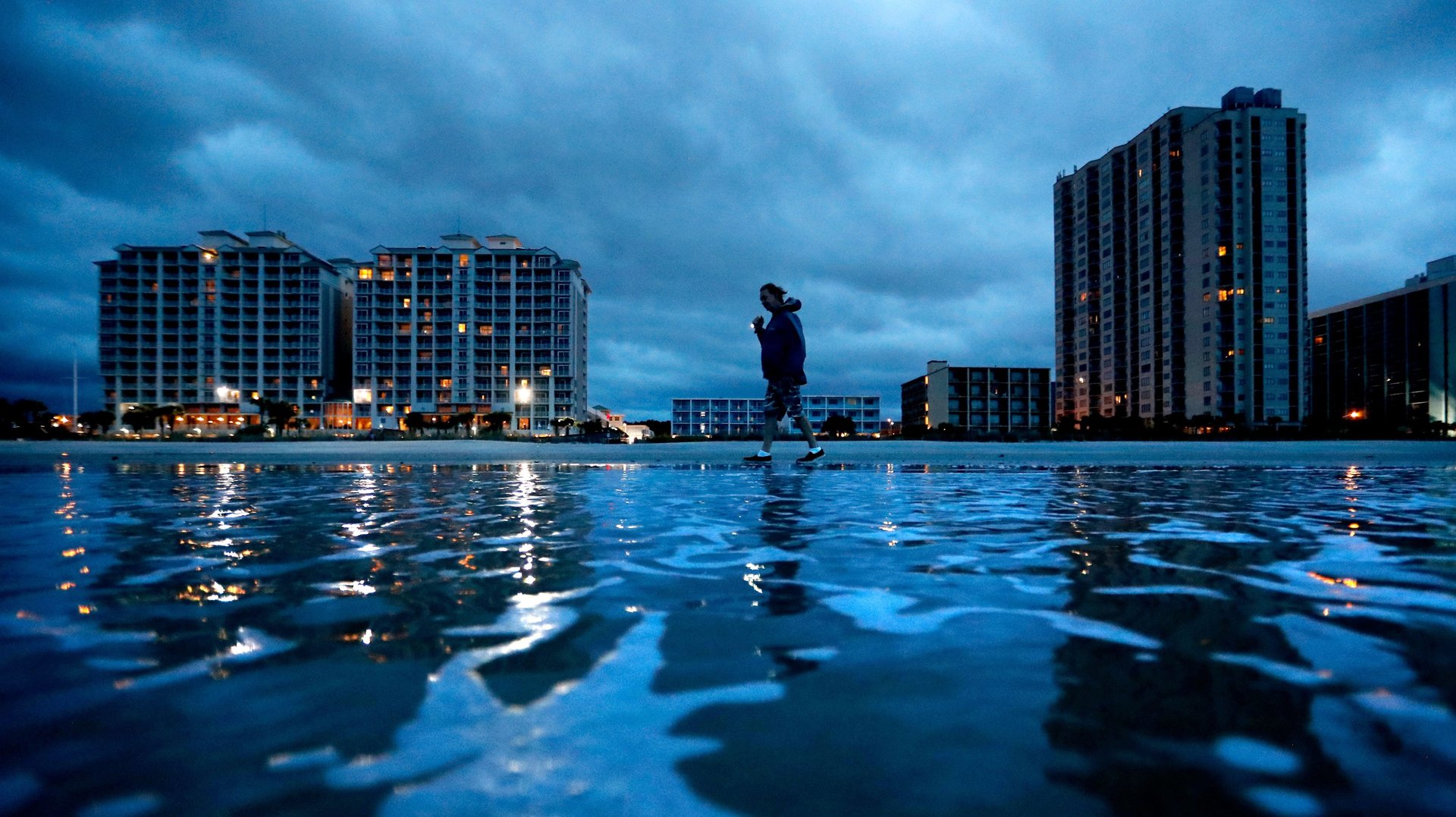The US usually tells immigrants they are safe from arrest before a hurricane hits. Not this time
The top immigration-enforcement agencies in the US, Customs and Border Protection (CBP) and Immigration and Customs Enforcement (ICE), have a longstanding practice of suspending the enforcement of immigration laws during natural disasters. The agencies’ combined 80,000 employees are often drafted to help in post-disaster rescue and recovery efforts.


The top immigration-enforcement agencies in the US, Customs and Border Protection (CBP) and Immigration and Customs Enforcement (ICE), have a longstanding practice of suspending the enforcement of immigration laws during natural disasters. The agencies’ combined 80,000 employees are often drafted to help in post-disaster rescue and recovery efforts.
The point is also to save lives: Anyone in the path of a disaster should evacuate or seek shelter without worrying about getting arrested or deported in the process. The US has 11 million residents without proper documentation, many of whom have jobs, families, and relatives that are US citizens.
When Hurricane Matthew was headed toward the southeastern US in October 2016, for example, the Department of Homeland Security (which oversees the two agencies, and the federal response to disasters) put out a joint statement from CBP and ICE two days before the storm hit. There would be no immigration enforcement at any checkpoints or shelters, it said, and it also advised law enforcement to disregard immigration orders for people in their custody, if they were in harm’s way:
In light of Hurricane Matthew, U.S. Immigration and Customs Enforcement’s (ICE) and U.S. Customs and Border Protection’s (CBP) highest priorities are to promote life-saving and life-sustaining activities, the safe evacuation of people who are leaving the impacted area, the maintenance of public order, the prevention of the loss of property to the extent possible, and the speedy recovery of the region.
As such, there will be no immigration enforcement initiatives associated with evacuations or sheltering related to Matthew, including the use of checkpoints for immigration enforcement purposes in impacted areas during an evacuation. If a state or local law enforcement agency determines that individuals in their custody should be transferred or released due to Matthew, the state or local law enforcement agency should not decline to do so solely on the basis of an immigration detainer issued by ICE or CBP.
The message was available in Spanish, Haitian Creole, Chinese, Korean, and Vietnamese, and was distributed to the news media, on agency websites, and to states near the storm.
Flash forward two years. Ahead of Hurricane Florence, which made landfall this morning in North Carolina, there have been no publicly distributed message from DHS or any of its associated agencies. Asked about immigration enforcement during the storm this morning, Federal Emergency Management Agency’s Jeff Byard said he was “not aware of any directive” from DHS. “We provide immediate assistance to any human who needs it,” Byard said, adding that he could not guarantee that immigration agencies would not be enforcing immigration laws during the storm.
Asked about the policy on immigration enforcement during Hurricane Florence, the CBP emailed Quartz this message:
U.S. Customs and Border Protection (CBP) and U.S. Immigration and Customs Enforcement (ICE) are concerned about the potential impact of Hurricane Florence to the East Coast of the United States, where North Carolina, South Carolina, and Virginia are under states of emergency. Our highest priority remains the preservation of life and safety. In consideration of these circumstances, there will be no immigration enforcement initiatives associated with evacuations or sheltering related to Florence, except in the event of a serious public safety threat.
The message wasn’t posted on any of the DHS agency websites as of this morning, or distributed to journalists via the main DHS or other agency press list. CBP didn’t answer follow-up questions about how the statement was distributed, or how undocumented people in the storm’s path should have learned that they don’t need to worry about being arrested.
The Trump administration has pursued a hard-line crackdown on immigrants in the US, including deporting long-time residents with no history of criminal behavior. During Hurricane Harvey last August, the administration kept open CBP checkpoints along evacuation routes, an anomaly that the ACLU called a “disgusting move.”
Immigrants make up 8% of North Carolina’s population, or about 800,000 people. About one-third are naturalized citizens.